Profile
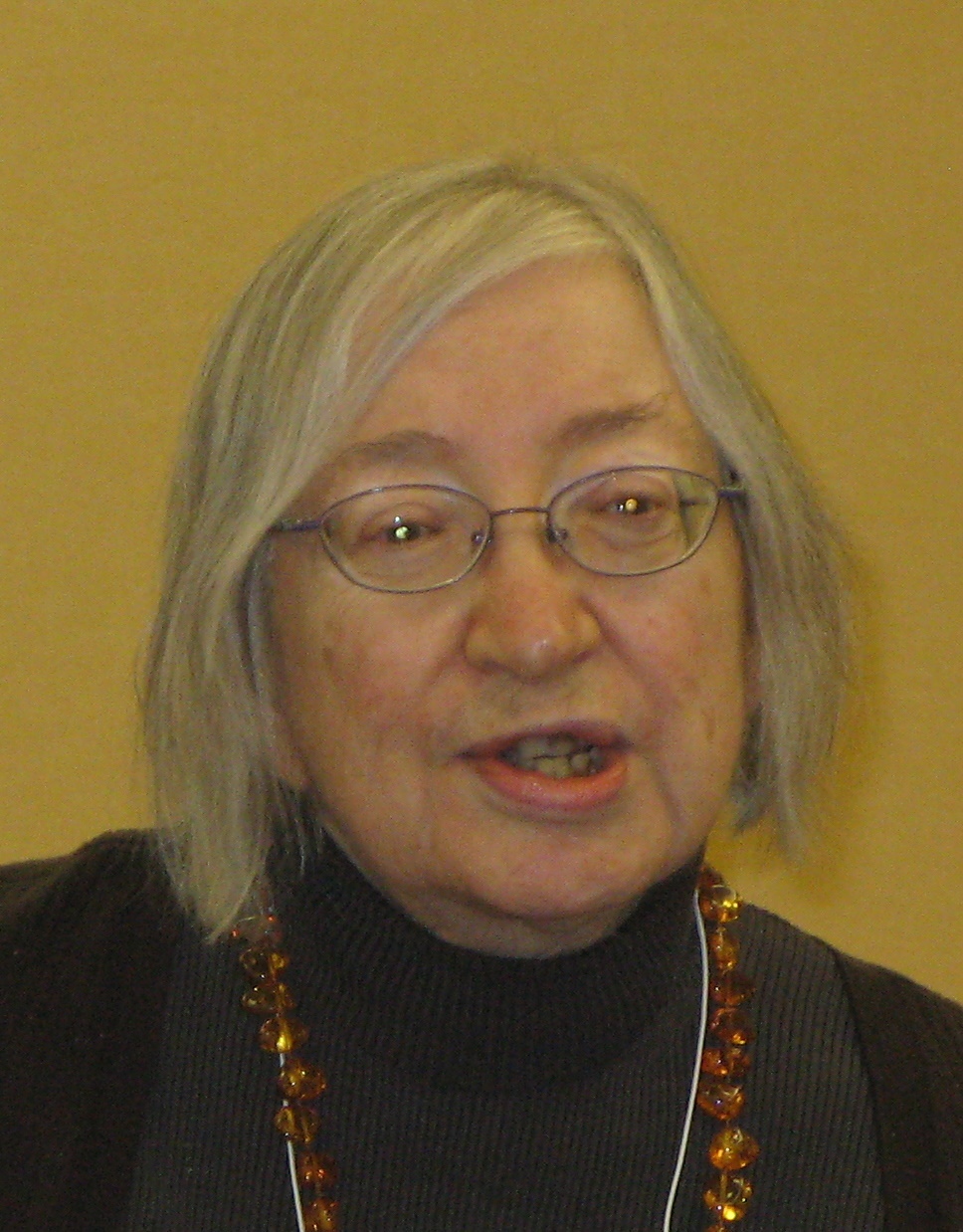
Rhoda Unger
Birth:
1939
Death:
2019
Training Location(s):
PhD, Harvard University (1966)
MA, Harvard University (1964)
BS, Brooklyn College (1960)
Primary Affiliation(s):
Women's Studies Research Center, Brandeis University (1999-2019)
Montclair State University (1972-1998)
Hofstra University (1966-1972)
Psychology’s Feminist Voices Oral History Interview:
Other Media:
Professional Website
Rhoda Unger's Profile at the Jewish Women's Archive
Archival Collection
Rhoda K. Unger Papers, Archives of the History of American Psychology, Drs. Nicholas and Dorothy Cummings Center for the History of Psychology - The University of Akron
Career Focus:
Feminist psychology; epistemological issues in psychology; sociology of knowledge approaches; contextual and individual factors influencing commitment to social change.
Biography
Rhoda Unger arrived in Brooklyn, New York on February 22, 1939 to Gustav and Ellen (Samuels) Kesler. She later began her graduate training in psychology at Harvard University at about the same time as several other women who would go on to become well-known feminist psychologists, such as Naomi Weisstein and Carol Gilligan. However, at the time, like many of her peers, she did not embrace a feminist identity or identify the institutionalized sexism that surrounded her. She did not even identify, at the time, as a social psychologist. She received her PhD in experimental psychology with Charles Gross in 1966. Soon, however, her identification - and her work - would change.
As the women's movement accelerated, Unger began to get very excited about the awareness and activism that was growing around her, but she did not locate herself in the larger social and political movement. However, she was certainly at the forefront of feminism in psychology: "I was part of the women's movement in psychology; it was always part of my contact with psychology, to be involved with women." She was an activist within psychology as an early member of the Association for Women in Psychology (AWP), the Society for the Psychology of Women (APA Division 35), and the Society for the Psychological Study of Social Issues (SPSSI). However, Unger claims that she did not fully realize her own feminist identity until she co-authored a now-classic textbook with Florence Denmark, called Woman: Dependent or Independent Variable ? (1975). Through the process of compiling the textbook, she read as much literature on the psychology of women as was available at the time.
Unger recalls from her first experiences teaching psychology of women courses that the environment in the 1970s was truly electric: "We had a lot of older women coming back who had not finished college or maybe not even gone. And they were really motivated and very interested in the field; ate it up, were eager to learn. I mean it was not just a faculty member teaching a student, we were all learning together; it was a very exciting period."
In her own work, Unger resisted the temptation to adopt a theoretically-driven, top-down position from which to conduct her research. Instead, social problems drove her research questions: "I am going to ask questions that have social meaning, that have to do with politics, that have to do with social movements, and that's how I generate my questions. I don't necessarily generate them from theory". Instead, she characterized herself as an empirical psychologist. "...I [have] always believed that you can use empirical research as a kind of rhetorical device to demonstrate, maybe it is the obvious, but people are not willing to accept the obvious when you tell it as an anecdote, but they might be able to accept it if you demonstrate it empirically."
Not surprisingly, in addition to her prodigious contributions to the psychology of women and gender, Unger also made important intellectual and institutional contributions to social psychology more generally. In 1998-99, she served as the president of the Society for the Psychological Study of Social Issues (SPSSI) and between 2000 and 2006 she served as the inaugural editor of the SPSSI-sponsored journal Analyses of Social Issues and Public Policy. She has contributed extensively to the historiography of social psychology and SPSSI, writing on feminism and women leaders in SPSSI, examining the collective biographies of SPSSI leaders, and analyzing the role of positive marginality in a psychology for social change.
In addition to empirical research, Unger published extensively on epistemological issues in psychology. She openly challenged psychology's understanding of the concepts of sex and gender, as well as the way they are used in research. She drew attention to the way our methods reflect and reproduce our models of reality. She consistently reminded us of the politics of knowledge affecting whose methods and whose views gain credibility and renown. Her own work garnered much attention, and in return she received many awards honoring her scholarship. She received the Distinguished Publication and Career Achievement awards from AWP and she was named a Fulbright scholar in 1988. Most recently, she was awarded the Gold Medal for Lifetime Achievement in Psychology in the Public Interest from the American Psychological Foundation. Unger became Professor Emerita at Montclair University in 1999, and remained a resident scholar at the Women's Studies Research Center at Brandeis University until the end of her life.
In reflecting on her professional and intellectual development, she noted the importance of her feminist community: "My psychological views developed from a community of senior and contemporary women who engaged with each other because of feminist commitments. We did not have an elitist hierarchy because none of us could get positions at elite universities, so development was more communal than in more conventional fields. I suspect intellectual development is more communal than we credit in general, but people take ownership of ideas and history focuses on the most successful."
Dr. Rhoda K. (Kesler) Unger died after a brief illness on April 19, 2019 in Concord, Massachusetts leaving behind her spouse of 53 years, two daughters, two grandchildren, and a rich legacy of contributions to the field of psychology. Her activism and commitment to psychology's need to impact social change is evident even in passing. She requested that in lieu flowers contributions be made to SPSSI (The Society for the Psychological Study of Social Issues) in her memory.
by Laura Ball (2010)
Updated (2019)
To cite this article, see Credits
Selected Works
Unger, R. K. (1979). Toward a redefinition of sex and gender.American Psychologist, 34, 1085-1094.
Unger, R. K. (1983). Through the looking glass: No Wonderland yet! (The reciprocal relationship between methodology and models of reality).Psychology of Women Quarterly, 8, 9-32.
Unger, R. K. (1986). SPSSI Council: A collective biography. Journal of Social Issues, 42, 81-88.
Unger, R. K. (1998). Resisting gender: Twenty-five years in/of feminist psychology. London, UK: Sage.
Unger, R. K. (2000). Outsiders inside: Positive marginality and social change. Journal of Social Issues, 56, 163-179.
Unger, R. K. (2006). Untangling the web: Threat, ideology, and political behavior. In P. Kimmel & C. Stout (Eds.), Collateral damage: The psychological effects of the war on terrorism (pp. 79–108). Westport, CT: Praeger.
Unger, R. K. (2011). SPSSI leaders: Collective biography and the dilemma of value-laden action and value-neutral research. Journal of Social Issues, 67, 73–91.
Unger, R. K. (2013). The three-sided mirror: feminists looking at psychologists looking at women. In A Century of Psychology (Psychology Revivals) (pp. 40-59). Routledge.
Unger, R. K. & Denmark, F. L. (1975). Woman: Dependent or independent variable?New York: Psychological Dimentions.
Unger, R. K., Sheese, K. & Main, A. (2010). Feminism and women leaders in SPSSI: Social networks, ideology, and generational change. Psychology of Women Quarterly, 34, 474-485
Photo Gallery
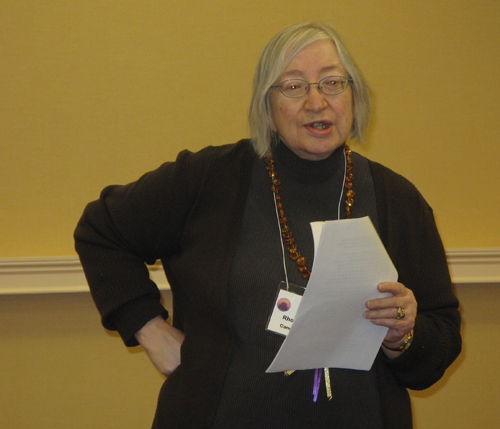

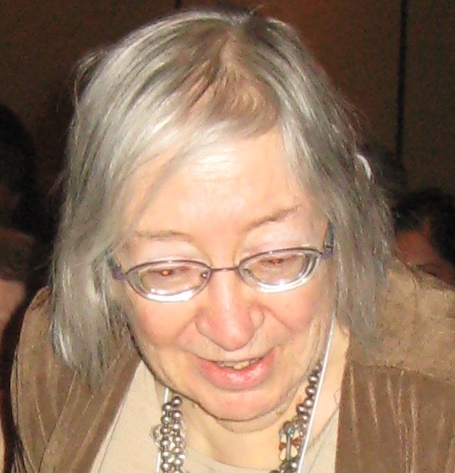


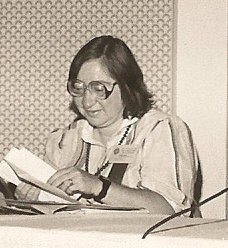


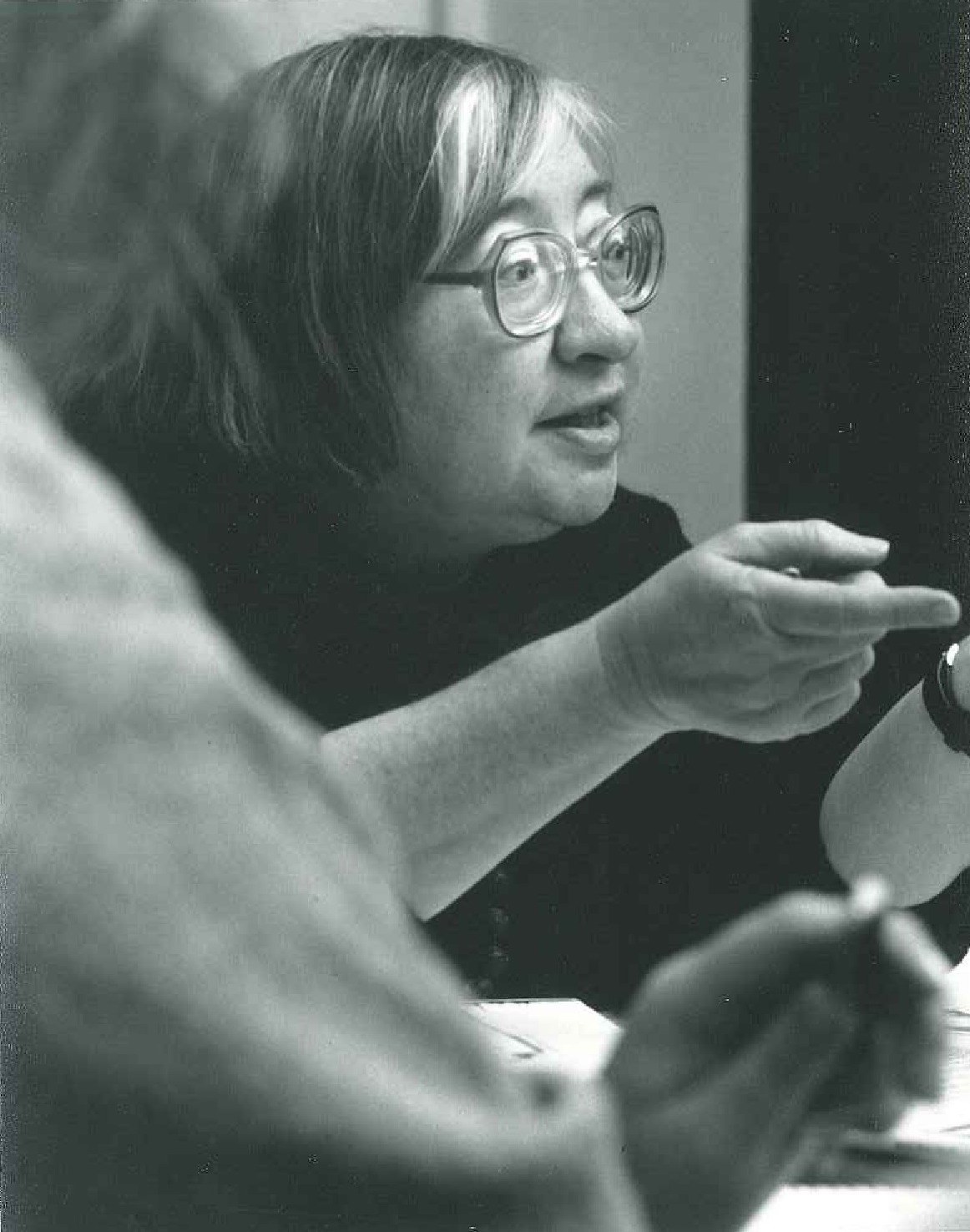

Rhoda Unger
Birth:
1939
Death:
2019
Training Location(s):
PhD, Harvard University (1966)
MA, Harvard University (1964)
BS, Brooklyn College (1960)
Primary Affiliation(s):
Women's Studies Research Center, Brandeis University (1999-2019)
Montclair State University (1972-1998)
Hofstra University (1966-1972)
Psychology’s Feminist Voices Oral History Interview:
Other Media:
Professional Website
Rhoda Unger's Profile at the Jewish Women's Archive
Archival Collection
Rhoda K. Unger Papers, Archives of the History of American Psychology, Drs. Nicholas and Dorothy Cummings Center for the History of Psychology - The University of Akron
Career Focus:
Feminist psychology; epistemological issues in psychology; sociology of knowledge approaches; contextual and individual factors influencing commitment to social change.
Biography
Rhoda Unger arrived in Brooklyn, New York on February 22, 1939 to Gustav and Ellen (Samuels) Kesler. She later began her graduate training in psychology at Harvard University at about the same time as several other women who would go on to become well-known feminist psychologists, such as Naomi Weisstein and Carol Gilligan. However, at the time, like many of her peers, she did not embrace a feminist identity or identify the institutionalized sexism that surrounded her. She did not even identify, at the time, as a social psychologist. She received her PhD in experimental psychology with Charles Gross in 1966. Soon, however, her identification - and her work - would change.
As the women's movement accelerated, Unger began to get very excited about the awareness and activism that was growing around her, but she did not locate herself in the larger social and political movement. However, she was certainly at the forefront of feminism in psychology: "I was part of the women's movement in psychology; it was always part of my contact with psychology, to be involved with women." She was an activist within psychology as an early member of the Association for Women in Psychology (AWP), the Society for the Psychology of Women (APA Division 35), and the Society for the Psychological Study of Social Issues (SPSSI). However, Unger claims that she did not fully realize her own feminist identity until she co-authored a now-classic textbook with Florence Denmark, called Woman: Dependent or Independent Variable ? (1975). Through the process of compiling the textbook, she read as much literature on the psychology of women as was available at the time.
Unger recalls from her first experiences teaching psychology of women courses that the environment in the 1970s was truly electric: "We had a lot of older women coming back who had not finished college or maybe not even gone. And they were really motivated and very interested in the field; ate it up, were eager to learn. I mean it was not just a faculty member teaching a student, we were all learning together; it was a very exciting period."
In her own work, Unger resisted the temptation to adopt a theoretically-driven, top-down position from which to conduct her research. Instead, social problems drove her research questions: "I am going to ask questions that have social meaning, that have to do with politics, that have to do with social movements, and that's how I generate my questions. I don't necessarily generate them from theory". Instead, she characterized herself as an empirical psychologist. "...I [have] always believed that you can use empirical research as a kind of rhetorical device to demonstrate, maybe it is the obvious, but people are not willing to accept the obvious when you tell it as an anecdote, but they might be able to accept it if you demonstrate it empirically."
Not surprisingly, in addition to her prodigious contributions to the psychology of women and gender, Unger also made important intellectual and institutional contributions to social psychology more generally. In 1998-99, she served as the president of the Society for the Psychological Study of Social Issues (SPSSI) and between 2000 and 2006 she served as the inaugural editor of the SPSSI-sponsored journal Analyses of Social Issues and Public Policy. She has contributed extensively to the historiography of social psychology and SPSSI, writing on feminism and women leaders in SPSSI, examining the collective biographies of SPSSI leaders, and analyzing the role of positive marginality in a psychology for social change.
In addition to empirical research, Unger published extensively on epistemological issues in psychology. She openly challenged psychology's understanding of the concepts of sex and gender, as well as the way they are used in research. She drew attention to the way our methods reflect and reproduce our models of reality. She consistently reminded us of the politics of knowledge affecting whose methods and whose views gain credibility and renown. Her own work garnered much attention, and in return she received many awards honoring her scholarship. She received the Distinguished Publication and Career Achievement awards from AWP and she was named a Fulbright scholar in 1988. Most recently, she was awarded the Gold Medal for Lifetime Achievement in Psychology in the Public Interest from the American Psychological Foundation. Unger became Professor Emerita at Montclair University in 1999, and remained a resident scholar at the Women's Studies Research Center at Brandeis University until the end of her life.
In reflecting on her professional and intellectual development, she noted the importance of her feminist community: "My psychological views developed from a community of senior and contemporary women who engaged with each other because of feminist commitments. We did not have an elitist hierarchy because none of us could get positions at elite universities, so development was more communal than in more conventional fields. I suspect intellectual development is more communal than we credit in general, but people take ownership of ideas and history focuses on the most successful."
Dr. Rhoda K. (Kesler) Unger died after a brief illness on April 19, 2019 in Concord, Massachusetts leaving behind her spouse of 53 years, two daughters, two grandchildren, and a rich legacy of contributions to the field of psychology. Her activism and commitment to psychology's need to impact social change is evident even in passing. She requested that in lieu flowers contributions be made to SPSSI (The Society for the Psychological Study of Social Issues) in her memory.
by Laura Ball (2010)
Updated (2019)
To cite this article, see Credits
Selected Works
Unger, R. K. (1979). Toward a redefinition of sex and gender.American Psychologist, 34, 1085-1094.
Unger, R. K. (1983). Through the looking glass: No Wonderland yet! (The reciprocal relationship between methodology and models of reality).Psychology of Women Quarterly, 8, 9-32.
Unger, R. K. (1986). SPSSI Council: A collective biography. Journal of Social Issues, 42, 81-88.
Unger, R. K. (1998). Resisting gender: Twenty-five years in/of feminist psychology. London, UK: Sage.
Unger, R. K. (2000). Outsiders inside: Positive marginality and social change. Journal of Social Issues, 56, 163-179.
Unger, R. K. (2006). Untangling the web: Threat, ideology, and political behavior. In P. Kimmel & C. Stout (Eds.), Collateral damage: The psychological effects of the war on terrorism (pp. 79–108). Westport, CT: Praeger.
Unger, R. K. (2011). SPSSI leaders: Collective biography and the dilemma of value-laden action and value-neutral research. Journal of Social Issues, 67, 73–91.
Unger, R. K. (2013). The three-sided mirror: feminists looking at psychologists looking at women. In A Century of Psychology (Psychology Revivals) (pp. 40-59). Routledge.
Unger, R. K. & Denmark, F. L. (1975). Woman: Dependent or independent variable?New York: Psychological Dimentions.
Unger, R. K., Sheese, K. & Main, A. (2010). Feminism and women leaders in SPSSI: Social networks, ideology, and generational change. Psychology of Women Quarterly, 34, 474-485









